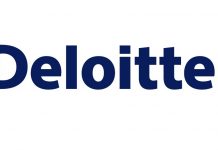The research arm of German banking giant Deutsche Bank in a recent report stated that blockchain technology is turning “tried-and-tested business models…on their head.”
The report’s author, DB Research Economist Thomas-Frank Dapp, indicates that this is why it is a good idea for many decision makers in the financial sector and beyond to keep a close eye on developments and various experiments with blockchain tech that are currently ongoing. Ideally they should themselves examine through projects or pilot studies how to put the technology into practice.
Dapp explains:
The key point about using a blockchain based on pure P2P mechanisms is that it eliminates intermediaries, spreading control across a large decentralised network of nodes and providing fundamental protection against manipulation and default.
The economist notes that the blockchain can be used wherever various types of transactions need to be checked and validated in near real time and protected against manipulatio without expensive intermediaries.
Dapp identifies applications that can be enabled by blockchain technology including payment instructions, securities transactions, clearing and settlement processes, digital currencies, transfers of property or copyrights, election processes, or the standardized and fully automated administration of contracts, such as a hire-purchase agreement for a car.
The author highlights how there are high expectations for the peer-to-peer technology both in the financial and insurance industries, as well as the public sector.
The report also includes examples of how blockchain tech can used to unlock products and services in the sharing economy, secure accuracy and transparency of government databases like land registries, and authenticate voting in elections while ensuring privacy.
According to the DB economist, establishing international blockchain standards is “an important and necessary step” particularly in era of…
- shorter product lifecycles,
- ever more rapid technological advances,
- cross-sectoral developments in the area of the Internet of Things and
- a wave of platformisation through technology-driven digital eco systems that are increasingly determining the pace of innovation in the digital world.
Dapp believes that government regulation will play a significant role in the implementation of digital technologies. Replacement of key public sector infrastructure will not likely occur unless there is political and/or regulatory will and the acceptance of both stakeholders and users.
Dapp concludes:
However, regardless of political hurdles, this kind of open-minded willingness to experiment by trial and error is precisely the approach we need to be taking in all sectors to assess the risks and opportunities of digital technologies so that they can be channelled in the appropriate direction within the appropriate legal framework. This is the only way for national economies to experience a real leap forward in innovation. It is the only way to boost the innovative power and the growth potential of national economies in the digital age.











